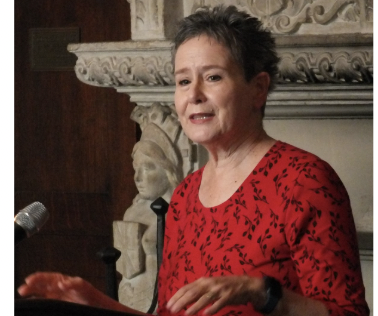"Dutch Fulbright board members resign over U.S. pressure on academic freedom," by Julie Moyes
In 1949 the bilateral treaty between the U.S. and the Netherlands established one of the first Fulbright programs in the world. J. William Fulbright sponsored legislation to create the program in the aftermath of the horrors of World War II, believing that the world could only heal and rebuild peacefully if young people could live and study in each other's countries.Since then the Dutch Program has given the opportunity of becoming a Fulbrighter to 7,000 outstanding U.S. and Dutch students, scholars, and teachers.
However, the program, and those who administer it, are not immune to present day American policy and politics. On November 10, six members of the binational Fulbright board in the Netherlands signed and submitted their resignations to the Dutch Education Minister (ad interim) and the recently arrived U.S. Ambassador of the United States Joseph Popolo. Four of them were Dutch and two were Americans resident in the Netherlands.
Their decision was in response to restrictions placed on the Fulbright program by Secretary Marco Rubio that he outlined in a March State Department cable. Most significantly, the guidance stated that: “Candidate projects/research proposals must be in alignment with both the specific requirements and the spirit of the executive orders on DEIA and Gender Ideology.”
The more detailed “Decision Rationale” that the signatories of the letter also submitted stated: “The resigning board members have not taken their decision lightly. It is based on their firm conviction that the spirit of academic freedom without political interference has been a guiding principle for the Fulbright Program during almost 80 years and sits at the core of its historical purpose and success. The current infringement of this principle is a sad moment for all.”
Their decision and rationale mirrored the June 11 resignation statement of 11 members of the U.S.-based Fulbright Foreign Scholarship Board (FFSB) that was established by Congress to supervise the global Fulbright Program as authorized by the Fulbright-Hays Act of 1961. The FFSB decision was prompted by the subjection of 1,200 foreign recipients to an “unauthorized review process,” which the board claimed "contradicted the statute and was antithetical to the Fulbright mission and the values, including free speech and academic freedom, that Congress specified in the statute."
Despite the resignations, the Dutch Fulbright Board still lives on with seven remaining board members, with more to be added. On its website the organization states that; "The remaining and incoming Board members believe they can best advance and safeguard the principles of the Fulbright Program by staying at the table; leading the program forward through fresh approaches; and continuing to support the talented, driven young people hoping to make a difference in the world and to contribute to valuable research and education cooperation. Fortunately, national commissions like ours have options to support and fund any grantees, and experience to date has been very positive.” For the full text from the board, click here.
While many have expressed sadness at the recent developments, there is also a determination to keep the Fulbright Program going. As Jill Adler, who spent 30 years on the Board and served as Chair and Vice Chair in the past, said: “I believe strongly that this richly unique program must be maintained for future generations. This will eventually pass.”
The story has been covered in the NRC Handelsblad in Dutch and in English by the NL Times.
For more information, see also Lonnie Johnson's response to the resignations: Click here.
 Julie Moyes is a retired Foreign Service Officer. She served twice in the Netherlands, including as Public Affairs Officer.
Julie Moyes is a retired Foreign Service Officer. She served twice in the Netherlands, including as Public Affairs Officer.